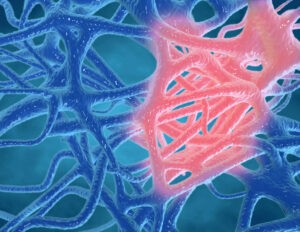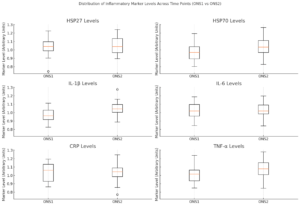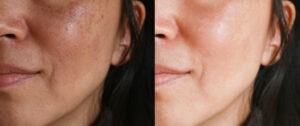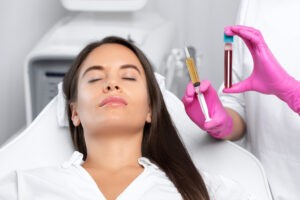
Whether you’re considering a tummy tuck, body contouring, or even a non-invasive treatment like CoolSculpting, inflammation is a common part of the healing process. Recently, there’s been growing interest in using preoperative nutritional supplements, or nutraceuticals, to potentially ease this inflammatory response.
But what exactly are nutraceuticals?
Nutraceuticals are products derived from food sources that provide additional health benefits beyond basic nutritional value. They often contain concentrated doses of compounds like omega-3 fatty acids, antioxidants, vitamins, amino acids, and minerals that are believed to support specific health functions—such as reducing inflammation or enhancing recovery. In this context, nutraceuticals are used as supplements to potentially boost the body’s resilience to the stress of surgery, aiding in faster and smoother healing.
A recent study offers insight into whether these types of supplements can make a measurable difference in surgical recovery, specifically for abdominal surgeries.
Let’s dive into the findings of this study and explore how they relate to popular plastic surgery procedures.
Understanding the Study: Nutraceuticals for Inflammation Management in Plastic Surgery
The study aimed to see if a specific nutrient blend, including omega-3 fatty acids and amino acids, could help reduce inflammation in patients having abdominoplasty (tummy tucks).
Participants were divided into two groups: one received a nutraceutical drink with anti-inflammatory ingredients, and the other received a dairy-based control drink. Researchers measured six inflammation markers—HSP27, HSP70, IL-1β, IL-6, CRP, and TNF-α—at three points: before surgery, during anesthesia, and 24 hours after surgery.
Here’s a quick rundown of these inflammation markers:
- HSP27 and HSP70 (Heat Shock Proteins):
These proteins act as “stress responders.” They help protect cells from damage during stress events, like surgery, by stabilizing proteins and aiding in repair. Increased levels often indicate the body’s response to trauma or inflammation. - IL-1β and IL-6 (Interleukins):
These are signaling molecules (cytokines) that play a role in promoting inflammation. IL-1β initiates inflammation, while IL-6 sustains it and can lead to fever and swelling. Both are common indicators of the body’s immune response to surgery or injury. - CRP (C-Reactive Protein):
CRP is produced by the liver and released into the bloodstream in response to inflammation. High CRP levels signal acute inflammation, making it a widely used marker to assess the intensity of inflammatory responses. - TNF-α (Tumor Necrosis Factor-alpha):
TNF-α is another cytokine involved in inflammation, helping to coordinate the immune response. Elevated TNF-α levels often indicate tissue damage or inflammation, and it’s a key player in acute inflammatory responses.
The findings showed no significant differences in inflammation markers between the nutraceutical and control groups, suggesting that this particular nutraceutical blend didn’t reduce inflammation in a way that would aid post-surgery recovery.

Graph created in collaboration between Nuveau and SEO Agency Round II Media
Breaking Down the Inflammation Markers Visualization
To better understand the study’s findings, let’s take a closer look at the chart above, which shows the levels of each inflammation marker—HSP27, HSP70, IL-1β, IL-6, CRP, and TNF-α—at a single critical time point, 24 hours after surgery (T2). This box plot compares the control group (ONS1) and the nutraceutical group (ONS2) for each marker, helping us see if there’s any difference between the two groups in terms of inflammation response.
Similar Levels Across Groups
For each marker, we observe similar distributions between the ONS1 and ONS2 groups. The median levels, as well as the range (whiskers) for each marker, show little variation between the two groups. This consistency suggests that, despite the surgical trauma, there was no significant difference in inflammation levels linked to the nutraceutical supplementation.
No Measurable Difference Between Groups
The plot shows that each inflammation marker level remains nearly identical between the nutraceutical group (ONS2) and the control group (ONS1). This lack of variation indicates that the nutraceutical drink did not have a measurable impact on reducing inflammation markers like IL-6 or TNF-α compared to the control.
Implications for Plastic Surgery Recovery
Typically, inflammation markers such as IL-6 and TNF-α increase in response to surgical trauma, so an effective anti-inflammatory supplement would ideally reduce their levels. However, the similar levels between the two groups imply that the nutraceutical blend used in this study didn’t affect the body’s inflammatory response to surgery. For plastic surgery patients, this means that while preoperative nutrition can support overall health, this specific blend doesn’t seem to reduce inflammation markers during recovery.
In Summary: This visualization reinforces the study’s main takeaway: the nutraceutical supplementation did not significantly impact inflammation markers. This finding suggests that other strategies might be necessary to manage post-surgical inflammation effectively for plastic surgery patients.
How Does This Apply to Plastic Surgery Procedures?
The data from this study offers valuable insights that can guide expectations and recovery strategies across various types of plastic surgery. Let’s break it down by procedure type:
1. Abdominoplasty and Body Contouring (Keywords: “tummy tuck cost houston,” “360 lipo near me”)
- Why Inflammation Matters: Abdominoplasty (tummy tucks) and body contouring procedures like 360-degree liposuction are invasive surgeries that require incisions and tissue manipulation. This naturally triggers an inflammatory response, which can affect recovery time, pain levels, and potential complications.
- Study Insight: The lack of a significant change in inflammation markers between the nutraceutical and control groups indicates that these supplements may not help reduce surgical inflammation. Patients undergoing tummy tucks or liposuction may still benefit from general nutrition for healing but may not see direct anti-inflammatory effects.
2. Non-Invasive Body Sculpting (Keywords: “coolsculpting machine,” “cryolipolysis houston”)
- Why Inflammation Matters: Treatments like CoolSculpting and cryolipolysis are non-surgical, targeting fat reduction without incisions. This minimizes inflammation compared to surgeries.
- Study Insight: Since the study showed no notable impact on inflammation for surgical patients, these supplements may be unnecessary for non-invasive procedures. However, maintaining good nutritional habits may support overall skin and body health, making non-surgical treatments potentially more effective and sustainable.
3. Facial Aesthetic Procedures (Keywords: “acne laser treatment,” “botox houston cost”)
- Why Inflammation Matters: Facial treatments like laser acne treatments and Botox involve varying levels of tissue interaction, with laser treatments potentially causing localized inflammation.
- Study Insight: For facial procedures that do create mild inflammation, nutraceuticals containing omega-3 fatty acids and antioxidants might still support skin health in a general way. However, this study suggests that these effects won’t likely translate into a noticeable reduction in inflammation for treatments like laser resurfacing or Botox injections.
4. Hair Restoration and Minimizing Inflammation at Injection Sites (Keywords: “advanced hair restoration houston,” “3 month prp for hair loss before and after”)
- Why Inflammation Matters: Hair restoration methods like PRP (platelet-rich plasma) injections create inflammation as part of the healing response to stimulate hair growth.
- Study Insight: Although the study’s nutraceutical supplement didn’t reduce inflammation in the context of abdominoplasty, PRP and other scalp treatments might still benefit from omega-3 and amino acid-rich supplements. While these supplements won’t directly reduce inflammation, they may support general scalp health and potentially aid in maintaining results.
5. Future Potential for Nutritional Strategies in Plastic Surgery Recovery (Keywords: “renova injections,” “body contouring houston tx”)
- Why Inflammation Matters: With many procedures, including Renova injections and surgical body contouring, reducing inflammation is a common goal to support better recovery and results.
- Study Insight: Although this specific nutraceutical blend didn’t impact inflammation markers, it raises questions about whether alternative formulations or higher doses might offer benefits. Further research could explore whether custom-tailored supplements could target inflammation more effectively, making them valuable preoperative tools in plastic surgery recovery.
Should Patients Use Nutraceuticals for Plastic Surgery Recovery?
For now, based on this study, preoperative supplements like the tested nutraceutical blend may not dramatically affect inflammation after surgery. While general nutrition is always valuable, patients should set realistic expectations about the effectiveness of supplements in reducing surgical inflammation.
For those undergoing non-invasive treatments or minor procedures, nutraceuticals could still be beneficial for overall skin and body health, though they won’t specifically reduce inflammation. If you’re considering any plastic surgery or aesthetic procedure, discussing nutrition-based recovery plans with your surgeon can offer personalized guidance.
Conclusion
At Nuveau Plastic Surgery, we recognize that each patient’s journey is unique. While preoperative nutraceuticals may not significantly reduce surgical inflammation, our team is dedicated to developing personalized recovery plans that encompass holistic practices and evidence-based strategies. Whether you’re considering a major procedure or a minor enhancement, we offer comprehensive guidance to support your healing and optimize your results.
Contact us today to schedule a consultation and discover how our tailored approach can help you achieve your aesthetic goals while ensuring a smooth recovery.

